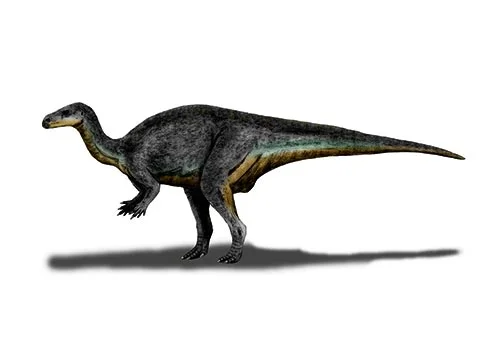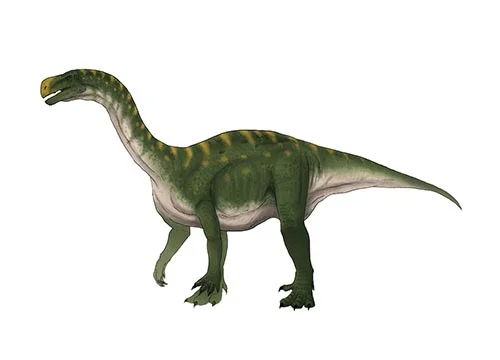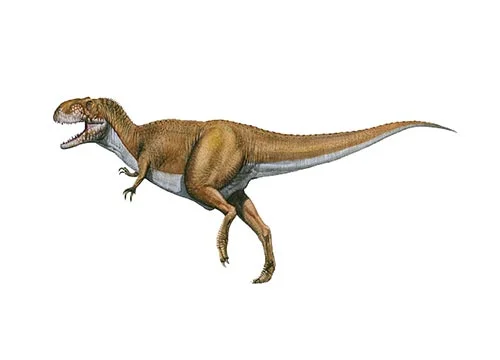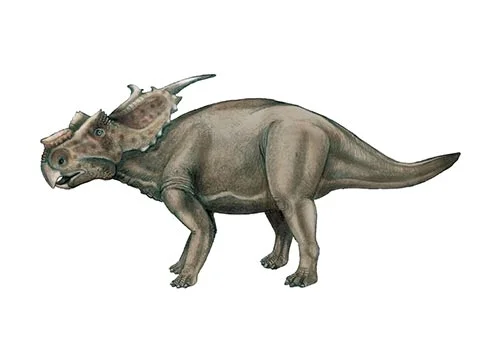Camptosaurus (Bent lizard)

Camp-toe-sore-us
Othniel Charles Marsh - 1885
Herbivore
Estimated 7 meters long
Euornithopod
C. dispar (type)
United Kingdom, USA
Late Jurassic, 155-145 million years ago
Camptosaurus Facts
Camptosaurus was a genus of medium-sized, quadrupedal, herbivorous dinosaurs that lived during the Late Jurassic period, about 155 to 145 million years ago. Camptosaurus was a member of the family Camptosauridae and was a close relative of the better-known Iguanodon.
The name Camptosaurus means “bent lizard” in Greek, referring to the characteristic shape of its lower jaw, which was downwardly curved. This unique jaw shape allowed Camptosaurus to have a diverse diet of leaves and stems, which it could grasp and crush with its powerful chewing muscles.
Camptosaurus stood on four sturdy legs and was estimated to reach up to 7 meters in length, making it one of the larger dinosaurs of its time. The head was small and elongated, with a long snout, sharp teeth, and large, bulging eyes that allowed it to have good vision and navigate its surroundings.
Camptosaurus was first described by Othniel Charles Marsh in 1879, based on fossils found in North America. Since then, more fossils have been discovered in Europe, including in England and Portugal, demonstrating the widespread distribution of this dinosaur.
Overall, Camptosaurus was an important dinosaur for understanding the evolutionary history of ornithopods, a group of dinosaurs that includes well-known species such as Iguanodon and Hadrosaurus. Its distinctive jaw and well-preserved fossils have made Camptosaurus a valuable resource for paleontologists studying dinosaur biology and ecology.



